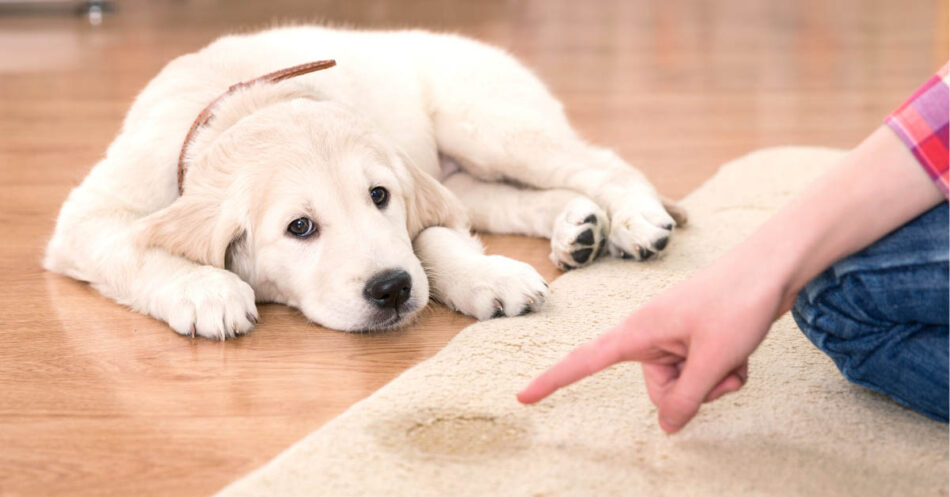
All You Need to Know About House Training a Puppy
This post may include affiliate links. Please read my disclosure policy.
House training is definitely one of the more challenging parts of being a new puppy parent. It’s time consuming, frustrating, and even gross at times (especially if you happen to put down a bare foot in a place where puppy has done his business!)
If you’ve been wondering how to deal with the puppy puddles your little pooch is leaving behind, take heart! House training isn’t impossible. In fact, if you follow these tips, you may be surprised at how quickly your pup catches on!
3 Essential Housetraining Tips
1. Be Consistent
Puppies have tiny little bladders, so be prepared to take your new friend outside a lot! As a general rule, puppies can only be expected to hold it one hour for every month of their lives, so if your puppy is 2 months old, plan on taking him out at least every 2 hours (and probably even more frequently at first.)
Most puppies need to be taken outside at least a couple of times at night. You may find that he can go longer at night than in the day, but if waiting longer leads to too many accidents he needs to be taken out more frequently.
You can train your puppy by taking him (on a leash) to the spot in your yard where you want him to do his business. If you want him to eventually go on command, now is the time to come up with a word to use before he goes. Stand there with him for a few minutes and, if he goes, praise him and reward him with a treat. If not, bring him back inside and try again soon.
In addition to regular potty breaks, there are a few other times when your puppy will predictably have to go. Plan on taking him out after he wakes up, after he’s done eating, and after he’s done playing. Keeping him on a predictable feeding, sleeping, and exercising schedule will help you to anticipate his needs and avoid accidents.
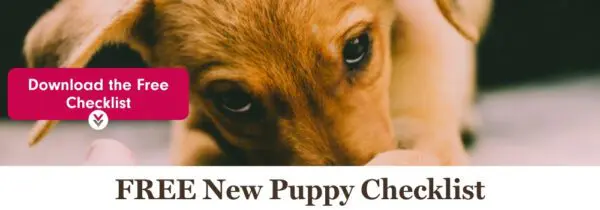
2. Don’t Let Him Out of Your Sight
For the first couple of weeks at least, it’s extremely important to pay close attention to your puppy so that you don’t miss the signs that he has to go. Too many accidents will only reinforce the idea that it’s ok to go potty in the house, so you’ll want to do all you can to encourage him to go where you want him to. Until he has had a good two weeks with no accidents you need to keep him in your sight at all times!
Many dog parents do this by keeping their pup on a leash that they either attach to themselves or to a piece of furniture that’s in the room with them. Keeping your little pooch in the same room will help you be alert to the signs that he has to go. If you see him circling, sniffing, scratching, or squatting bring him outside immediately!
No one can be expected to supervise a puppy 24/7, so have a plan to keep him confined when you’re not right there with him. Some puppy parents keep their pooch in a small corner of a room using baby gates; others choose to use a crate. The advantage of crating is that dogs are clean animals, so they won’t typically go to the bathroom in their own personal space.
If you are going to be away from home for an extended period during the day, consider having a friend or petsitter stop by to let your puppy out. This will help to avoid accidents and will make the potty training process go much more smoothly.
3. Expect Accidents
Accidents will happen, and the last thing you want to do is punish your pup if you catch him going in the wrong place. This will only confuse him and teach him not to pee in front of you.
Any time you catch your puppy in the act, quickly scoop him up and bring him to the place you have chosen for him to do his business. If he finishes there, praise and reward him. If not, simply bring him back inside.
Make sure that you clean any accidents thoroughly. You don’t want to leave any lingering scent that could tell your puppy that this is now a place to go potty. Use an enzyme-based cleaner, like my very own Kinderbean No Stress Mess Eraser. Rather than simply mask the odor (which any dog can smell right through) enzymatic cleaners break down the urine molecules and remove the scent at its source, lessening the chance that your pup will return to the same spot in the future.
House training a new puppy is a lot of work! It takes consistency and a load of patience. But if you take the time to do it right, you’ll be rewarded with a well trained dog and floors that stay pee free!
Pin me!
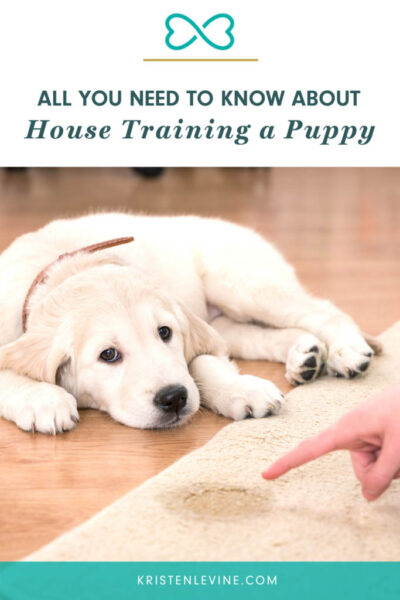

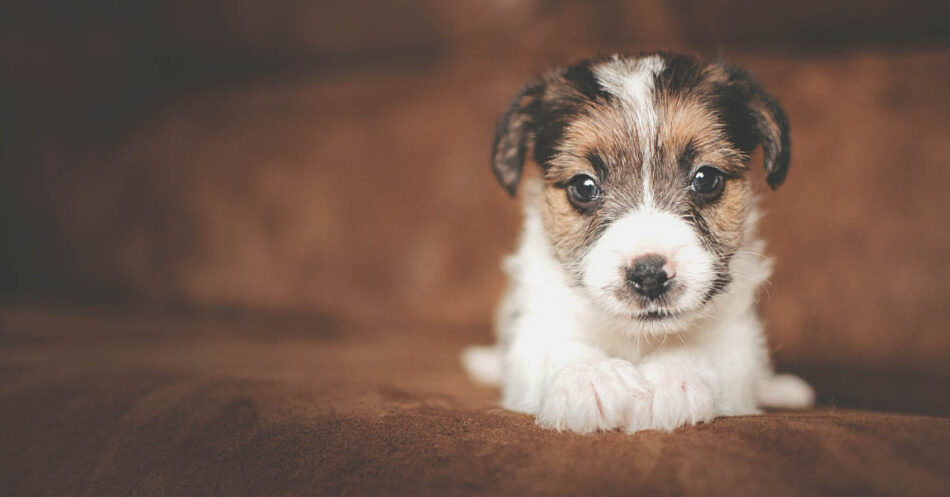
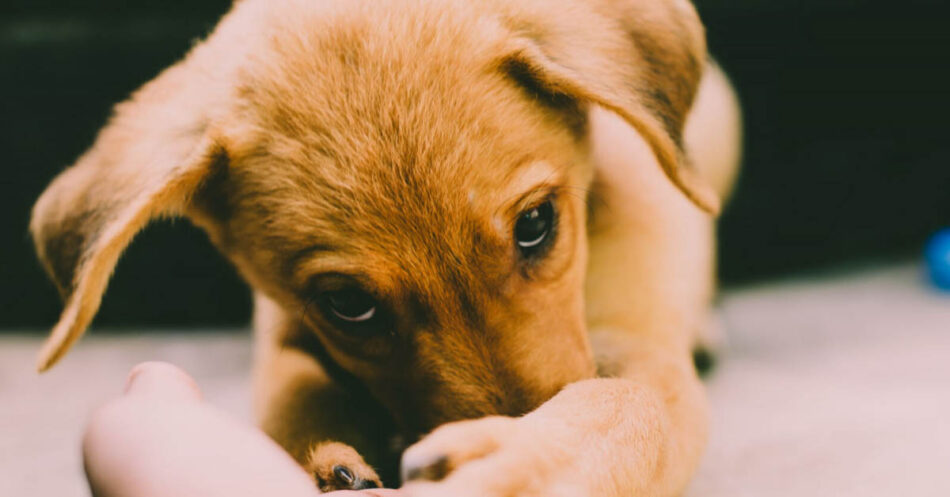
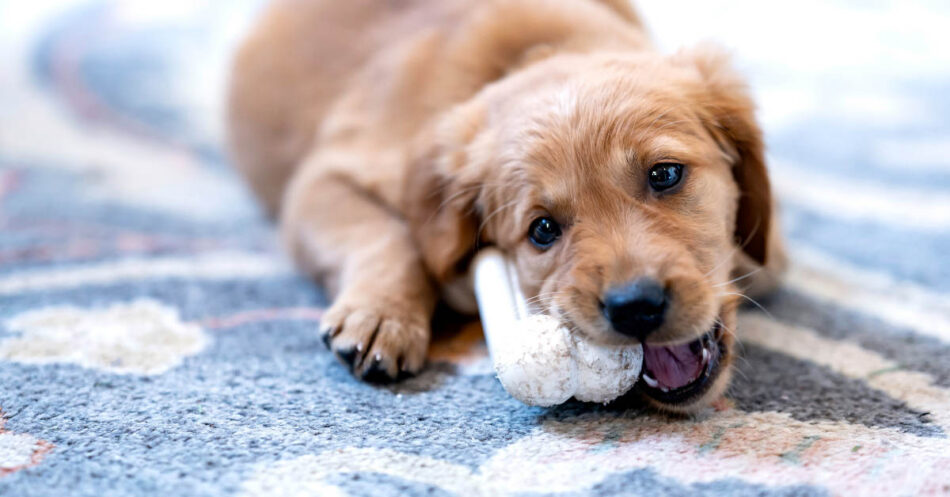
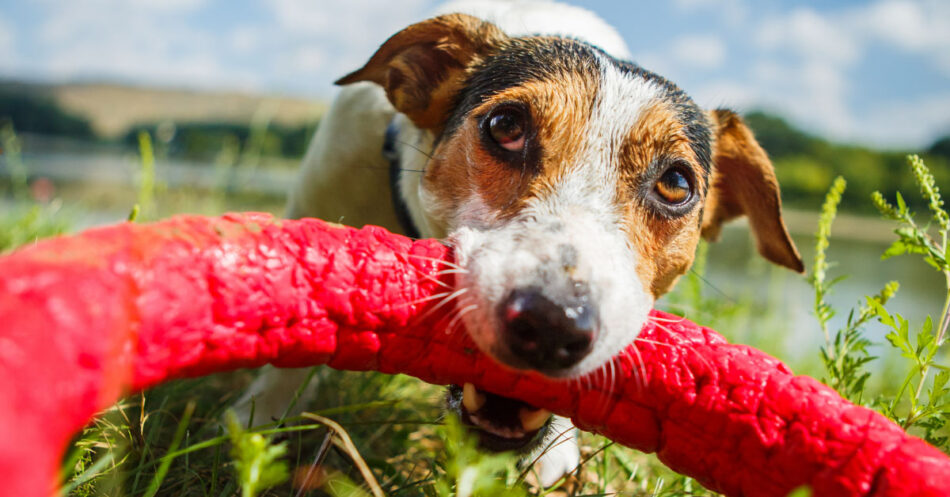
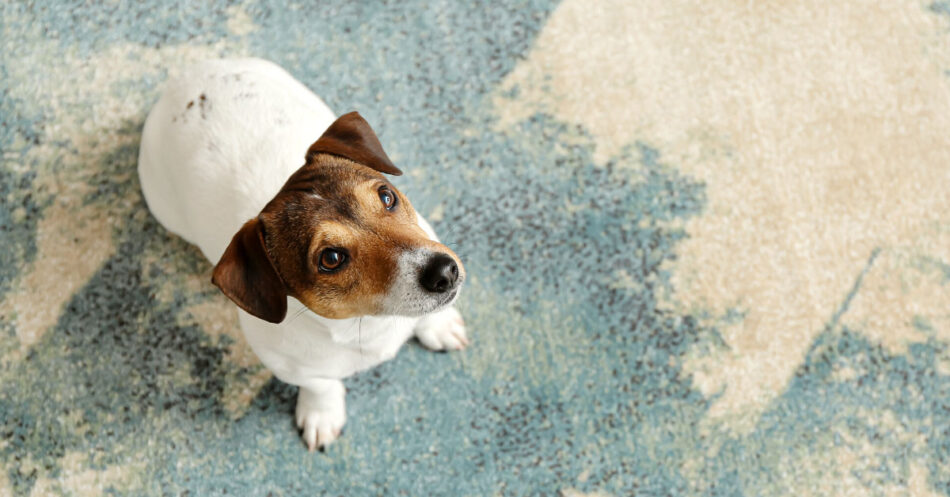
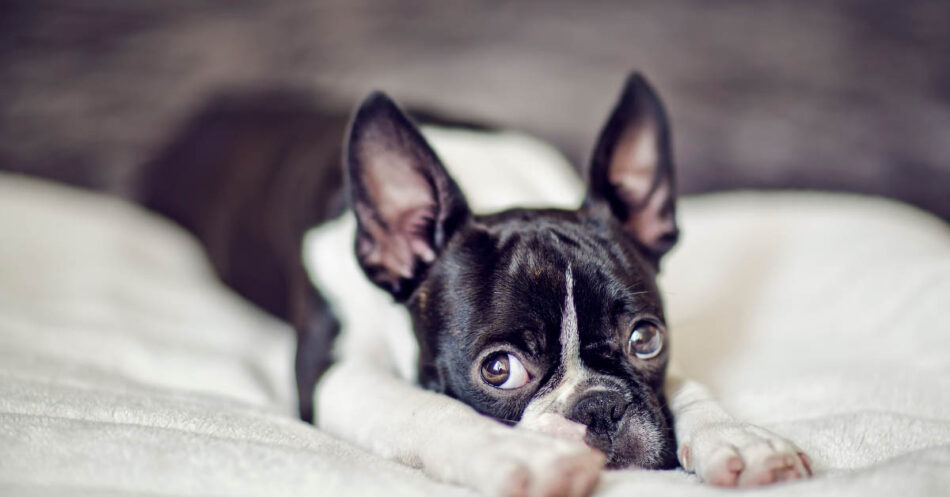
We got our puppy 5 weeks ago and have established a great potty training routine.
However, we have now moved back to our appartment in MD and she is now arround alot of other dogs and people. She is scared to go to the bathroom outside. How do I help her relax to go to the bathroom and set a schedule.Thanks,
Ellen